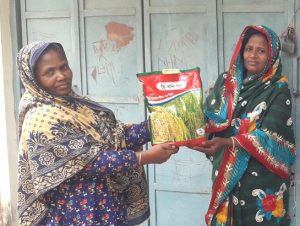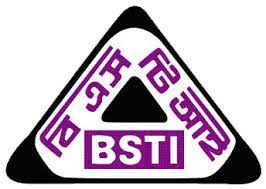“Business, as usual, is not an option” was the provocative message of more than 400 authors of the UN-and World Bank-led International Assessment of Agricultural Knowledge, Science and Technology for Development (IAASTD), published in 2009. It is probably still the most comprehensive assessment of global agriculture.
One decade later, there seems to be general agreement that our food systems must urgently undergo a fundamental transformation in order to withstand the enormous challenges of today and tomorrow. The climate and biodiversity crises, unprecedented exhaustion of natural resources, rising malnutrition and its health impacts, are amongst the most pressing challenges. The COVID-19 pandemic has further exposed sharp injustices and the system-wide failures of today’s prevailing food and agriculture systems.
In a new book, Transformation of our food systems – the making of a paradigm shift, 40 food system experts describe major highlights and trends since the ground-breaking IAASTD report was published. They take stock of the intervening decade, reviewing key global developments in agriculture and nutrition and the course of discussions about food systems, as reflected in major international reports and UN agreements between 2009 and 2019. While the food systems’ debate has gained momentum, the past decade has been lost with respect to addressing the urgently needed turnaround. However, agroecology, for many of the authors, is the emerging and integrating answer to the new challenges.
An advisory group of former IAASTD authors identified eight key messages they draw from the evidence, which are reproduced below. They conclude that today’s multiple accelerating crises demand transformative change and that ample evidence now exists showing that such change is not only possible but is already happening on the ground in communities and countries around the world.
The book is available for download at https://www.globalagriculture.org/transformation-of-our-food-systems/book.html
Key Messages
Key message 1
“Business as usual” is (still) not an option. A radical transformation of food systems is necessary. In many respects, the IAASTD got it right. Significant institutional, political and structural changes must be undertaken at local, meso (territorial) and global scales if we are to escape the deadly consequences of today’s accelerating and converging climate and biodiversity crises and succeed in radically transforming the systems that have pushed us to breach planetary boundaries and undermine the natural systems on which human survival depends [3, 13, 17, 26].
Key message 2
Failure to make progress at national and global levels is due primarily to lack of political will, power imbalances and system lock-ins. These lock-ins include: path dependency, export orientation, expectation of cheap food, compartmentalized, short-term or linear thinking, “feed the world” or technological fix narratives, inappropriate measures of success (focusing for example on simple economic metrics such as GDP or single crop yield that fail to value social and natural capital and neglect to quantify true costs), opposing agendas from corporate actors, limited donor vision, fear of failure and concentration of power [11, 13, 14, 17, 22, 28].
Key message 3
We cannot solve today’s multiple, converging and accelerating crises with uni-dimensional, linear, reductionist or mechanistic responses. We need, rather, to embrace a food systems approach with solutions that have multiple, converging and positively reinforcing outcomes that bring beneficial synergistic effects across multiple domains [2, 9, 11, 22, 24, 25, 26, 28, 29]. Transformative agroecology, for example, is not only productive, resilient, adaptable and profitable but also focuses on agency, democracy, equity, rights and ecological renewal [24, 25, 29]. Indigenous approaches such as Buen Vivir, sumak kawsay, Ubuntu and swaraj, provide ways of knowing and being (epistemologies and ontologies, respectively) that offer holistic, multi-dimensional pathways towards a viable future, including, often, recognition of the rights of Mother Earth [1, 27]. Bringing agroecological and Indigenous approaches together in conversation offers a powerful way forward, rooted in interculturality and respect [1, 22]. These and other holistic and multifunctional systemic approaches also support progress toward the Sustainable Development Goals (SDGs) and stand in sharp contrast to the limited benefits offered by narrow technological fixes such as genetically modified crops and new genetic technologies that do not address underlying agronomic deficiencies, inequitable power dynamics or the dominant social and environmental constraints to sustainable production [8, 9, 18, 25].
Key message 4
Progress towards a livable and viable future requires deeply participatory democratic processes and cannot be attained without attention to basic rights – in particular the rights of farmers, women, Indigenous peoples and other people working in rural areas [1, 3, 10, 15, 19, 24, 25, 27, 28, 29]. Implementing a rights-based approach requires enacting legislation and measures to promote and protect these rights, strong policy commitment to the obligations established in human rights law such as UNDROP and UNDRIP, and addressing the power asymmetries and inequities that impede these rights [15]. Fulfilling human rights requires replacing corporate and elite control over land, seeds, water and other productive and natural resources with cooperative ownership and other democratic models such as those based on principles of circular and solidarity economies. It also requires centring the leadership, vision and experience of women, peasants, fishers, pastoralists, small-scale livestock keepers, farmworkers, Indigenous peoples and others working in rural and urban areas [1, 7, 9, 15, 16, 20, 22, 25, 27, 28]. Deep changes in governance are needed to foster their inclusion, participation, empowerment and agency, including recognition of territorial systems of communal, collective and customary self-governance [3, 15, 16, 19, 23, 24].
Key message 5
Stabilizing climate and reversing trends in biodiversity losses requires transforming agri-food systems toward agroecological systems, reducing food waste and loss as well as meat consumption in most regions, and prioritizing and valuing natural, social and human capital [9, 11, 13,17, 19, 23]. Societies must work within the realities of ecological limits and planetary boundaries, while economic systems—as one among many aspects of socio-cultural organization—must be adapted to serve rather than drive society [3, 13, 27]. Governments and civil society will need to redirect and shape policies, research, extension and market incentives away from dominant models of input-intensive industrial agriculture and towards diversified, knowledge-intensive systems that mitigate climate change and regenerate and conserve the natural resource base [5, 9, 11, 18]. An intercultural “dialogue of knowledge” between Indigenous and agroecological pathways and local practices can support the political, social, ecological and cultural shifts necessary to promote resilience, social equity and planetary health [1, 27].
Key message 6
Promotion of healthy, diversified and sustainable diets can both reduce the major forms of malnutrition and offer multiple reinforcing co-benefits to human and ecological health. A holistic and transdisciplinary approach to health-protective food systems will enable communities to grow culturally acceptable, accessible, affordable, safe and healthy food, protect farmers and food system workers’ well-being, conserve natural resources, and protect biodiversity and the critical ecosystem functions on which society depends [19, 22, 23]. Today’s expanded understanding of health and “food safety” necessitates a bold and comprehensive regulatory approach that tackles longer-term threats to human, ecosystem and environmental health posed by current production systems. This approach requires overcoming funders’ and policymakers’ resistance to change that arises from conflicts of interests, attachment to familiar but overly simplistic interventions, aversion to battling vested commercial interests, and attraction to false promises of easy solutions [22].
Key message 7
Rebalancing power in the agri-food system requires action to both curtail the power of dominant corporations and large businesses that underpin the industrial food system and to provide space for different trade and marketing systems that empower and allow small-scale and peasant farmers, Indigenous peoples, women, and rural and urban communities to flourish. Governments should utilize measures, including competition and anti-trust regulations, to reverse trends in corporate concentration [4, 14]; redirect subsidies and incentives away from unsustainable practices and towards agroecological practices [5, 24]; support short supply chains, territorial markets and distribution infrastructures and locally-managed interactive rural-urban linkages [11, 20]; use public procurement of agroecological produce and artisanal foods to build or rebuild these markets and infrastructures [11]; and revise institutions, policies and regulations shaping ownership and control over resources, ensuring farmers’ secure access to and control over land, water, genetic, intellectual property and other resources [15, 24]. Valuable approaches include participatory and territorial management planning processes that centre Indigenous peoples, women and youth [15, 16, 23, 27, 29], and that ensure seed sovereignty through, for example, farmer-to-farmer seed exchange [1, 24, 26, 28].
Key message 8
Systems transformation requires a re-visioning and re-centring of values of equity, reciprocity and solidarity; principles of democracy, justice and collectivity; and the recognition that humans exist within, not outside of, nature. The process of transformation also implies re-valorizing the local, socio-cultural, biodiverse and resilient [11, 17, 23, 25].
Over a decade ago, the IAASTD presented “options for action.” Today, decisive action is no longer “an option;” it’s an imperative. The COVID-19 pandemic has moreover laid bare the inequities, system failures and dangers of today’s dominant, globalized and increasingly corporatized food and agriculture systems that have concentrated profits in the hands of a few, while simultaneously driving global climate, biodiversity and health crises towards their tipping points. What is inarguable is that today’s multiple accelerating crises demand transformative change. Ample evidence now exists that such change is not only possible but is already happening on the ground in communities and countries around the world.
Transformation of our food systems offers evidence that our most promising ways forward lie in a pluriverse of cultures and solutions; the respectful co-creation of diverse bits of knowledge; and the collective visioning, re-imagining and implementing of systems of fair and democratic governance that rebalance power, restore ecological integrity and prioritize social justice and human and ecosystem health within planetary boundaries.
– Third World Network




